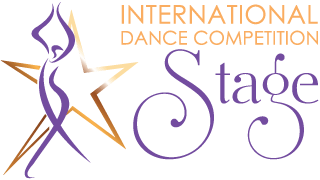STAGE Rules and Regulations for the 2025 competition season
Please note:
VENUE AND TIMETABLE
The timetable will be made available to participants 3-5 days after the registration deadline. This will be delivered via e-mail. Please provide us with an active email address. After the first version of the timetable is published, all registered contestants will have 24 hours to make changes if they need to. The final timetable cannot be changed once it has been published. All entries must be ready to perform up to one hour before their scheduled performance time. If necessary, STAGE reserves the right to change the schedule or cancel any performance from it.
JUDGING / SCORING SYSTEM
Each category is judged by 3 judges. Judges evaluate each routine using points from 1 – worst to 10 – best in the following parameters:
- TECHNIQUE (balance, poise, smoothness of movement, agility, body control, body stretch, body strength, power, use of shape and lines)
- MUSIC, RHYTHM (musical timing, musical phrasing, appropriate music, diversity of rhythm)
- INTERPRETATION (presentation, personality, emotional execution, energy, charisma, self-assuredness, interaction between dancers)
- CHOREOGRAPHY (creativity, originality, use of space/dimensions/levels, theatrical and visual effects, synchronization)
- OVERALL IMPRESSION (appropriate costume and make-up, grooming, ability to capture the audience, crowd appearance, would you like to see it again)
The final result is the arithmetic mean of the scores that have been assigned by all the judges.
DANCE DISCIPLINES
♫ Ballet
Ballet variations. The routine must consist of ballet technique, classical steps, and movements.
♫ Neoclassical Ballet
Neoclassical ballet is a style of ballet that eschews the elaborate sets and costumes of classical and romantic ballet in favor of more minimalistic aesthetics, enabling the viewer to focus instead on the dancers’ expressive, fast-paced movements. Neoclassical, meaning the revival of a classical style, changed and adapted the original art form of ballet which lead to its own unique and brilliant style. It can be performed on pointe, barefoot or soft shoes.
♫ Pas de deux
Dance for two performers. The strictly classical balletic pas de deux followed a fixed pattern: a supported adagio, a solo variation for the male dancer, a solo variation for the female dancer, and a coda in which both participants displayed their virtuosity.
♫ Contemporary | Modern
Routine incorporating contemporary movement fused with modern elements. Should incorporate balance, control, and extension moves.
♫ Open
A routine that does not fit into one of our performance categories or a routine that is a combination of two or more of our performance categories.
♫ Jazz
Jazz technique, various styles of jazz (e.g., Broadway jazz, Latin jazz,). Jazz is an energetic dance style, consisting of unique moves depending on the specific style and era of jazz you are leaning. The styles and steps must reflect jazz dance technique.
♫ Lyrical Ballet
Routine encompasses the use of balance, flexibility, and control utilizing the lyrics and feel of the music.
♫ Musical Theatre
Routine utilizing a Broadway or Movie Musical Song incorporating dance, characters, and/or costumes. No live singing, music is taken from a musical, a dance film, or a music-film, the musical character must be recognizable. All styles are permitted including both classical and contemporary musicals.
♫ Acro Style
Routine using controlled moves such as walkovers, limbers, handstands, chest rolls, etc. May contain gymnastic passes, flexibility moves, and/or contortionist moves. (A tumbling pass is considered one trick.) Must contain dance moves, steps, and choreography.
♫ Hip-Hop
Routine using primarily hip-hop technique and moves. Different dance styles of hip hop such as e.g., Old-school and New school. The old school includes: popping, locking, jazz-rock, and hype, the new school includes: a new style, dance hall, and House dance (footwork, jacking, and lofting) are considered in this category. also included: wicking, voguing, and experimental. Use choreography to be inspired, but do not copy, be creative! As Hip-Hop is a personal expression of emotions or situations and experiences. Abusive language and violent expressions are forbidden in music and performance. Acrobatic/Break movements are allowed but dancing has to dominate. Includes hip-hop category, Eastern and Western styles such as: bounce, shake, (Harlem style), funky stiles (Locking, Popping, Boogaloo, Waving, Floating, Tutting, Ticking, Snaking, Air Posing, Sleepy style…), New style, Dynamic Dance Styles (up rock, Topock, down rock), Freezes, Foot and Floorwork. We would appreciate staying in the maintenance of a special style, vocabulary, and elements of hip hop culture. Acrobatic movements are allowed but the dance elements and accents must dominate.
♫ Street Style | MTV Dance
A fusion of different dance styles with newly created choreographies inspired by the MTV tradition, variety shows, and popular singing groups. It is a commercial style of jazz, a fusion of Jazz, Funk, Hip Hop, or other styles, which you can see performed both live and in video clips alike. The accent is on presentation, style, expression, and performance.
♫ Folk | Character Dance
A routine incorporating one or more ethnic styles of dance. a routine portraying a recognizable character. May incorporate any form of dance.
♫ Latin Show
Latin Show means Latin American dance performances with Latin music such as Samba, Cha Cha, Rumba, Paso Doble, Jive, or any other type of Latin music chosen by the contestants. Costumes can be a carnival, African, futuristic, street, or the Caribbean. Musicality, variety of dance and formation changes, originality, overall performance, and individual choreography are evaluated. Acrobatic elements are not allowed.
Age Division
- Baby: 3-5 years
- Mini: 6-8 years
- Children: 9-11 years
- Junior: 12-15 years
- Senior: 16-18 years
- Adults: 19+ years
Dance Categories
- Solo (1 dancer Male/Female)
- Duo/Trio (2-3 dancers)
- Group (4-10 dancers)
- Formation: (11-29 dancers)
- Production: (30+ dancers)
Duration of Performances
- Solo/Duo: 1:00 – 2:00 minutes
- Small group: 2:00 – 3:00 minutes
- Formation: 3:00 – 4:00 minutes
- Production: 4:00 – 6:30 minutes
AWARDS AND SPECIAL AWARDS
DESCRIPTION
The Competition is open to dance schools from all countries. Failure to respect or only partially respect the regulations may lead to exclusion or disqualification from the competition.
- Each dancer, group, formation, and production may compete for a maximum of twice in the same category.
- No rehearsals are scheduled. Dancers and their teachers can practice on stage if possible, during the pauses.
- Performers, teachers, studio owners, and prop coordinators are the only people allowed backstage.
- Please show respect for our venues. Leave the dressing area, auditoriums, and all other public spaces clean.
LEGAL AUTHORIZATIONS
- The organizers cannot be held responsible for damages or injuries that may occur during the event to objects or people.
- The registration fee and the sum paid for its services will not be refunded in case of cancellation on the part of the participants.
- The leader of each group, under his/her sole responsibility, declares that all participants have a sufficiently good state of health state for physical fitness and that the minor participants have obtained permission from parents or legal guardians.
- The organizers have permission to freely use for their purposes the images and videos taken during the activities of Stage.
- The leader of each group who signs this application form declares under his/her responsibility that students, parents, tutors, or guardians have been informed about and have approved each point and rule/regulation, and the terms and conditions for participation as stated here.
MUSIC RULES
- We please ask that NO inappropriate words, content, or subject be used in music.
- The “STAGE” will not tolerate: swearing, or abusive content (racism, sexism, or other), adjudicators are to deduct marks at their discretion.
- Judges reserve the right to disqualify routine or music that is deemed inappropriate for family audience viewing.
MODIFICATIONS OR CANCELLATION
- The organization reserves the right, if circumstances require, to modify or cancel the event, to change at any time the schedules, awards, events, categories, sections, places, and activities mentioned in this document without any obligation towards participants, who will be promptly informed.
- In case of cancellation of the competition on the part of the organizers because of force majeure, registration fees will be refunded to the participants. Any travel or accommodation costs made by participants cannot be refunded.
LEGALITY
The format and the logo of the competition STAGE are a trademark. Abuses or copies are prohibited.
ACCESS TO THE THEATRE AND TO TICKETS
- Access to the stage, backstage, and dressing-rooms will be allowed only to dancers and choreographers, using the personal stamp received during check-in.
- Tickets will be on sale on the day of the competition.
PAYMENT METHODS
- Payoneer
- Wise
- Bank account
(Contact for payment via email competition.stage@gmail.com)

